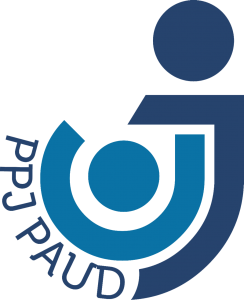Exploratory study: the impact of implementing “you and me” sexual education program in the family
DOI:
https://doi.org/10.26555/jecce.v4i2.4799Keywords:
You and Me, Children, Family, Sexual Education Implementation.Abstract
In recent years, there was news about sexual violence experienced in early childhood. Sexual violence becomes public health issue in many countries, which has negative consequences for the victims. The impact of sexual violence can affect children psychologically, physically, psychosocially, and etc. The study aims to determine the impact of implementing the sexual education “You and Me” program in the family. Rutgers WPF and PKBI Central Java have provided the “You and Me” program since 2017, but the several schools have adjusted the implementation of sexual education based on the learning theme. This study used the qualitative descriptive approach method. The research subjects consist of 5 participants of parents who have children at the age of 2-6. Data analysis techniques are carried out into four stages: data reduction, descriptive data presentation, data classification or coding categorization, and concluding. The result stated that the impact of the sexual education “You and Me” program on children has various effects and aligns with sexual education. Therefore, it can be concluded that the application of sexual education from five participants is quite effective. The results showed that the participants had a positive impact on children's behavior and thoughts while delivering sexual education. Although not all participants told their experiences in applying sexual education, most of them showed the positive impact of the children’s behaviour and thoughts.
References
Breuner, C. ., & Mattson, G. (2016). Sexuality Education for Children and Adolescents. Pediatrics, 138(2), e1–e11. https://doi.org/10.1542/peds.2016-1348
Briggs, F. (2014). Child Sexual Abuse in Early-Childhood Care and Education Settings. Early Child Dev. Care, 184(9–10), 1415–1435.
Cashmore, J., & Shackel, R. (2018). Gender Differences in the Context and Consequences of Child Sexual Abuse. Current Issues in Criminal Justice, 26(1), 75–104. https://doi.org/10.1080/10345329.2014.12036008
Erhamwilda, E., & Afrianti, N. (2016). Analysis on Early Childhood Sexual Abuse and the Implications in Islamic Education. Jurnal Pendidikan Islam, 2(1), 105–126. https://doi.org/10.15575/jpi.v2i1.696
Erhamwilda, E., Suhardini, A. D., & Afrianti, N. (2017). Analysis of Early Childhood Teacher Perceptions of Sex Education in an Islamic Perspective. MIMBAR: Jurnal Sosial Dan Pembangunan, 33(1), 81–89. https://doi.org/10.29313/mimbar.v33i1.2071
Fauziah, N. (2016). Hubungan Peran Orang Tua pada Akses Media Terhadap Perilaku Seksual Remaja di SMAN 11 Surabaya [Universitas Airlangga]. www.repistory.unair.ac.id
Finkelhor, D. (2009). The Prevention of Childhood Sexual Abuse. Future of Children, 19(2), 169–194. https://doi.org/10.1353/foc.0.0035
Fuadi, M. A. (2011). Dinamika Psikologis Kekerasan Seksual: Sebuah Studi Fenomenologi. PSIKOISLAMIKA: Jurnal Psikologi Islam, 8(2), 191–208. https://doi.org/10.18860/psi.0i0.1553
Homma, Y., Wang, N., Saewyc, E., & Kishor, N. (2012). The Relationship between Sexual Abuse and Risky Sexual Behavior among Adolescent Boys: A Meta-Analysis. J Adolesc Health, 51(1), 18–24. https://doi.org/10.1016/j.jadohealth.2011.12.032
Hornor, G. (2010). Child Sexual Abuse: Consequences and Implications. Journal of Pediatrics Health Care, 24(6), 358–363. https://doi.org/10.1016/j.pedhc.2009.07.003
Islawati, I., & Paramastri, I. (2015). Program “Jari Peri” sebagai Pelindung Anak dari Kekerasan Seksual. Jurnal Psikologi, 42(2), 115–128. https://doi.org/10.22146/jpsi.7167
Juniawati, J. (2015). Komunikasi dalam Keluarga: Upaya Strategis Mencegah Kekerasan pada Anak. RAHEEMA: Jurnal Studi Gender Dan Anak, 2(1), 39–49. https://doi.org/10.24260/raheema.v2i1.167
Kenny, M. C., & Wurtele, S. K. (2008). Preschoolers’ Knowledge of Genital Terminology: A Comparison of English and Spanish Speakers. American Journal of Sexuality Education, 3(4), 345–354. https://doi.org/10.1080/15546120802372008
KPAI, K. (2017). Laporan Kinerja KPAI – 2017. www.kpai.go.id
Krug, E. G., Mercy, J. A., Dahlberg, L. L., & Zwi, A. B. (2002). The World Report on Violence and Health. Public Health, 360, 1083–1088. https://doi.org/10.1016/S0140-6736(02)11133-0
Laeheem, K. (2013). Family and Upbringing Background of Students with Bullying Behavior in Islamic Private Schools, Pattani province, Southern Thailand. Asian Social Science, 9(7), 162–172. https://doi.org/10.5539/ass.v9n7p162
Lin, D., Li, X., Fan, X., & Fang, X. (2011). Child Abuse & Neglect Child Sexual Abuse and its Relationship with Health Risk Behaviors among Rural Children and Adolescents in Hunan, China. Child Abuse & Neglect, 35(9), 680–687. https://doi.org/10.1016/j.chiabu.2011.05.006
Listiyana, A. (2012). Peranan Ibu dalam Mengenalkan Pendidikan Seks pada Anak Usia Dini. EGALITA: Jurnal Kesetaraan Dan Keadilan, 5(2), 1–14. https://doi.org/10.18860/egalita.v0i0.1998
Lozano, R., Naghavi, M., Foreman, K., Lim, S., Shibuya, K., Aboyans, V., Abraham, J., Adair, T., Aggarwal, R., Ahn, S. Y., Almazroa, M. A., Alvarado, M., Anderson, H. R., Anderson, L. M., Andrews, K. G., Atkinson, C., Baddour, L. M., Barker-collo, S., Bartels, D. H., & Murray, C. J. L. (2012). Global and Regional Mortality from 235 Causes of Death for 20 Age Groups in 1990 and 2010: A Systematic Analysis for the Global Burden of Disease Study 2010. Lancet, 380, 2095–2128. https://doi.org/10.1016/S0140-6736(12)61728-0
Ma, X., Shen, J., Krenn, H. Y., Hu, S., & Yuan, J. (2016). A Meta-Analysis of the Relationship Between Learning Outcomes and Parental Involvement During Early Childhood Education and Early Elementary Education. In Educational Psychology Review (Vol. 28, Issue 4). https://doi.org/10.1007/s10648-015-9351-1
Martin, K. A., & Torres, J. M. C. (2014). Where did I Come From? US Parents’ and Preschool Children’s Participation in Sexual Socialisation. Sex Education: Sexuality, Society and Learning, 14(2), 174–190. https://doi.org/10.1080/14681811.2013.856291
Moleong, L. J. (2014). Kualitatif, Metodologi Penelitian. Remaja Rosdakarya.
NSVRC. (2011). Child Sexual Abuse: Prevention: Program for Children. www.nsvrc.org
Osadan, R., & Reid, E. (2015). The Importance of Knowing Child Sexual Abuse Symptoms in the Elementary Teacher’s Work. International Journal of Humanities and Social Science, 5(7), 20–32. https://doi.org/10.1016/S0145-2134(00)00212-X
Pandia, W. S. S., Widyawati, Y., & Indriati, E. (2017). Sexual Education Knowledge for Early Childhood. . . Advances in Social Science, Education and Humanities Research (ASSEHR). 3rd International Conference on Early Childhood Education (ICECE-16), 58, 446–450. https://doi.org/10.2991/icece-16.2017.78
Patriani, I. I. (2018). Kekerasan Seksual Pada Anak Usia Dini. Diseminasi Hasil Penelitian.
Raijaya, I. G. A. A. K. M., & Sudibia, I. K. (2017). Faktor-Faktor Sosial Ekonomi Penyebab Terjadinya Kasus Pelecehan Seksual pada Anak di Kota Denpasar. PIRAMIDA: Jurnal Kependudukan Dan Pengembangan Sumber Daya Manusia, 13(1), 9–17.
Rakhmawati, E., Hadjam, N. R., Aditya, D. P., & Yunita, A. R. (2021). Roles of Family in Introducing Early Sexual Education to Children. Proceedings of the International Conference on Psychological Studies (ICPSYCHE 2020), 530, 290–296. https://doi.org/10.2991/assehr.k.210423.042
Santrock, J. W. (2020). A Topical Approach to Life-Span Development Tenth Edition (Tenth Edit). McGraw-Hill Education. http://library.lol/main/6a2f0e8237ee515cfd28a90e3d34e4b5
Sugiyono. (2017). Metode Penelitian Pendidikan: Pendekatan Kuantitatif, Kualitatif, dan R&D. Alfabeta.
Sumera, M. (2013). Perbuatan Kekerasan/Pelecehan Seksual Terhadap Perempuan. Lex Et Societatis, 1(2), 39–49.
Suyati, T., Yulianti, P. Y., & Rakhmawati, E. (2018). Pengembangan Media Komik Asertif Berseri Untuk Pengenalan Organ Reproduksi Bagi Anak Usia Dini (Prevensi Kekerasan Seksual Bagi Anak Usia Dini).
Topping, K. J., & Barron, I. G. (2009). School-Based Child Sexual Abuse Prevention Programs: A Review of Effectiveness. Review of Educational Research Spring, 79(1), 431–463. https://doi.org/10.3102/0034654308325582
UNICEF. (2016). Indonesia as A Pathfinder to End Violence Against Children. www.aidsdatahub.org
Van Der Kolk, B. A. (2009). Developmental Trauma Disorder: Towards A Rational Diagnosis for Children with Complex Trauma Histories. Prax Kinderpsychol Kinderpsychiatr, 58(8), 572–586. https://doi.org/10.13109/prkk.2009.58.8.572
Waid-Lindberg, C. A., & Mohr, N. L. (2019). Child Sexual Abuse. The Encyclopedia of Women and Crime, 1–7. https://doi.org/10.1002/9781118929803.ewac0051
Widyastuti, E. S. A. (2015). “You and Me” Pendidikan Kespro Anak Usia Dini. Media Komunikasi dan Informasi PKBI Jawa Tengah.
Wurtele, S. K., & Berkower, F. (2010). Off Limits: A Parent’s Guide to Keeping Kids Safe from Sexual Abuse. Safer Society Press.
Wurtele, S. K., & Kenny, M. C. (2011). Normative Sexuality Development in Childhood: Implications for Developmental Guidance and Prevention of Childhood Sexual Abuse. Journal of Multicultural Counseling and Development, 43(9), 1–25.
Zhang, W., Chen, J., & Liu, F. (2015). Preventing Child Sexual abuse Early: Preschool Teachers’ Knowledge, Attitudes, and their Training Education in China. Sage Journals, 5(1), 1–8. https://doi.org/10.1177/2158244015571187
Zwi, K., Woolfenden, S., Wheeler, D., O’Brien, T., Tait, P., & Williams, K. (2008). School‐Based Education Programmes for the Prevention of Child Sexual Abuse. Evid Based Child Health a Cochrane Review. https://doi.org/10.4073/csr.2007.5
Downloads
Published
How to Cite
Issue
Section
License
Copyright (c) 2022 Ellya Rakhmawati

This work is licensed under a Creative Commons Attribution-ShareAlike 4.0 International License.
Authors who publish with this journal agree to the following terms:
- Authors retain copyright and grant the journal right of first publication with the work simultaneously licensed under a Creative Commons Attribution-ShareAlike 4.0 International License that allows others to share the work with an acknowledgement of the works authorship and initial publication in this journal.
- Authors are able to enter into separate, additional contractual arrangements for the non-exclusive distribution of the journals published version of the work (e.g., post it to an institutional repository or publish it in a book), with an acknowledgement of its initial publication in this journal.
- Authors are permitted and encouraged to post their work online (e.g., in institutional repositories or on their website) prior to and during the submission process, as it can lead to productive exchanges, as well as earlier and greater citation of published work (See The Effect of Open Access).














